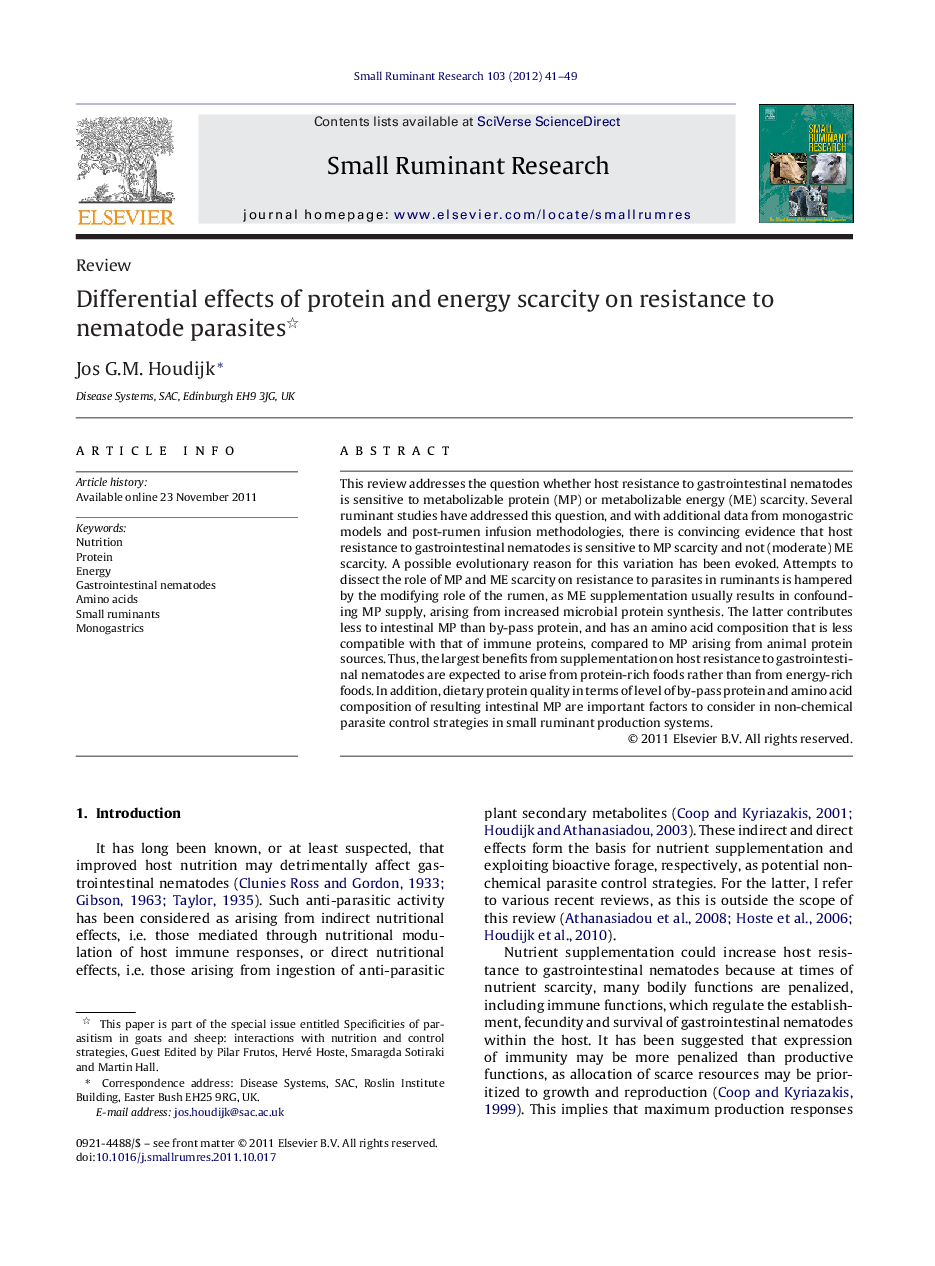| کد مقاله | کد نشریه | سال انتشار | مقاله انگلیسی | نسخه تمام متن |
|---|---|---|---|---|
| 2457165 | 1110695 | 2012 | 9 صفحه PDF | دانلود رایگان |

This review addresses the question whether host resistance to gastrointestinal nematodes is sensitive to metabolizable protein (MP) or metabolizable energy (ME) scarcity. Several ruminant studies have addressed this question, and with additional data from monogastric models and post-rumen infusion methodologies, there is convincing evidence that host resistance to gastrointestinal nematodes is sensitive to MP scarcity and not (moderate) ME scarcity. A possible evolutionary reason for this variation has been evoked. Attempts to dissect the role of MP and ME scarcity on resistance to parasites in ruminants is hampered by the modifying role of the rumen, as ME supplementation usually results in confounding MP supply, arising from increased microbial protein synthesis. The latter contributes less to intestinal MP than by-pass protein, and has an amino acid composition that is less compatible with that of immune proteins, compared to MP arising from animal protein sources. Thus, the largest benefits from supplementation on host resistance to gastrointestinal nematodes are expected to arise from protein-rich foods rather than from energy-rich foods. In addition, dietary protein quality in terms of level of by-pass protein and amino acid composition of resulting intestinal MP are important factors to consider in non-chemical parasite control strategies in small ruminant production systems.
Journal: Small Ruminant Research - Volume 103, Issue 1, March 2012, Pages 41–49